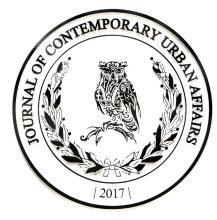Resource information
The research focused on simulating wind patterns in urban planning design offers substantial contributions to both the social and economic aspects of the urban planning and design field To begin with it addresses a critical factor in urban development especially in Mediterranean climates where natural ventilation significantly influences summer comfort By incorporating predictive numerical simulations of urban wind patterns this study provides valuable insights into improving outdoor thermal comfort within urban areas This holds particular importance in the context of adapting to climate change as it equips urban planners and architects with informed decisionmaking tools to create more sustainable and comfortable urban environments Additionally this research makes an economic contribution by presenting guidelines for iterative wind simulations in the early stages of designing mediumscale urban projects Through the validation of a simulation workflow it streamlines the design process potentially reducing the time and resources required for urban planning and architectural design This enhanced efficiency can result in cost savings during project development Moreover the studys recommendations concerning simulation parameters such as wind tunnel cell size and refinement levels offer practical insights for optimizing simulation processes potentially lowering computational expenses and improving the overall economic viability of urban design projects To summarize this research effectively addresses climaterelated challenges benefiting both social wellbeing and economic efficiency in the field of urban planning and design while also providing guidance for more efficient simulationdriven design procedures


